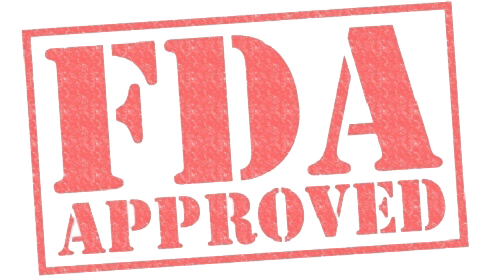
USFDA Approves Tepotinib for Metastatic Non-Small Cell Lung Cancer
The United States Food and Drug Administration (FDA) has granted traditional approval to tepotinib (Tepmetko, EMD Serono, Inc.) for adult patients with metastatic non-small cell lung cancer (NSCLC) harbouring mesenchymal-epithelial transition (MET) exon 14 skipping alterations. This decision marks a significant milestone in the treatment landscape for this specific subset of NSCLC patients.
Tepotinib initially received accelerated approval for the indicated use on February 3, 2021, based on the initial overall response rate (ORR) and duration of response (DOR) observed in the VISION trial (NCT02864992). The VISION trial was a multicenter, non-randomised, open-label, multicohort study. The conversion to traditional approval was driven by additional data from 161 patients and an extended 28-month follow-up period, providing a more comprehensive assessment of DOR.
The efficacy of tepotinib was demonstrated in a total of 313 patients with metastatic NSCLC harbouring MET exon-skipping alterations. Patients received a daily dose of tepotinib at 450 mg until disease progression or unacceptable toxicity.
Key findings from the primary efficacy measures revealed an overall response rate of 57% (95% CI: 49, 65) among 164 treatment-naïve patients, with 40% of responders experiencing a durable response lasting 12 months or more. In the group of 149 previously treated patients, the overall response rate was 45% (95% CI: 37, 53), and 36% of responders demonstrated a durable response of 12 months or longer. These results highlight tepotinib's effectiveness in both treatment-naïve and previously treated patient populations.
The most common adverse reactions, reported in more than 20% of patients, included oedema, nausea, fatigue, musculoskeletal pain, diarrhoea, dyspnea, decreased appetite, and rash. The safety profile, albeit with some expected side effects, supports the overall benefit-risk assessment for tepotinib in the approved indication.
The recommended dose of tepotinib is 450 mg orally once daily with food, providing a convenient and manageable treatment option for eligible patients.
This approval was facilitated by the Assessment Aid, a voluntary submission from the applicant aimed at streamlining the FDA's assessment process. Notably, the application received breakthrough designation and orphan drug designation, emphasising the drug's potential to address unmet medical needs in a rare and serious condition.
FDA expedited programmes, as outlined in the Guidance for Industry: Expedited Programmes for Serious Conditions—Drugs and Biologics, were instrumental in expediting the review and approval process, underscoring the agency's commitment to addressing serious medical conditions promptly.